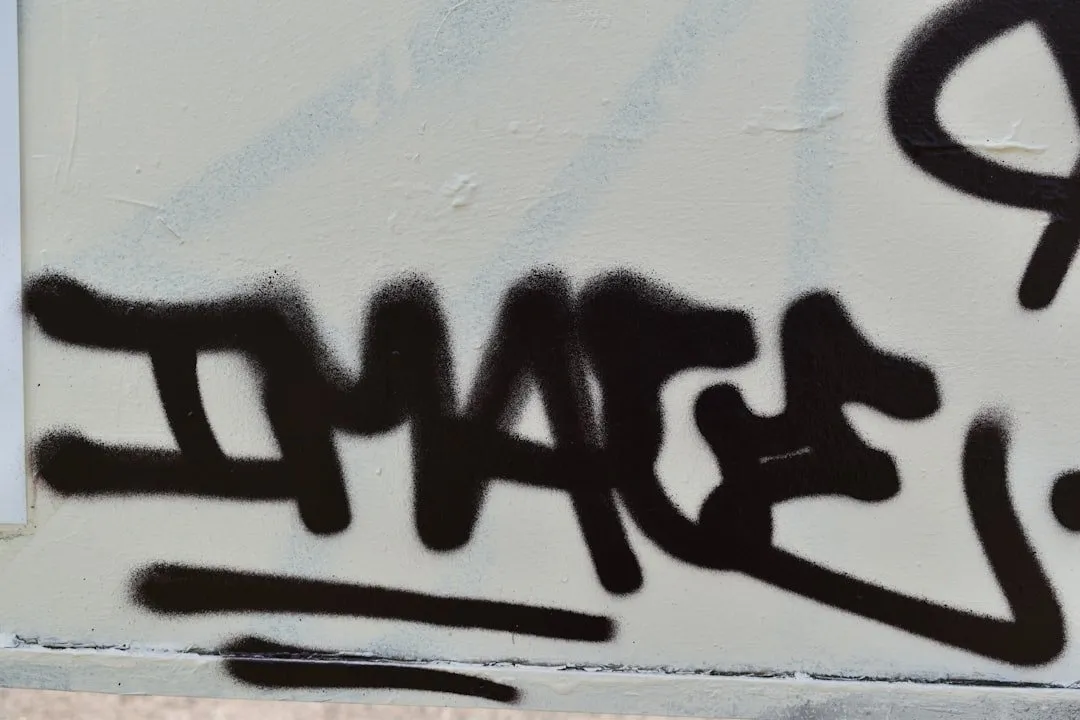Category: is kratom legal in nevada
Is Kratom Legal in Nevada? A Comprehensive Analysis
Introduction
In the evolving landscape of alternative medicine and recreational substances, the status of kratom (Mitragyna speciosa) has become a subject of intense debate and scrutiny, particularly within individual US states. This article delves into the intricate world of kratom’s legal status, focusing on Nevada as a case study. By examining historical perspectives, global trends, economic implications, technological innovations, policy frameworks, and real-world applications, we aim to provide an all-encompassing understanding of why and how kratom’s legality in Nevada has evolved, and what the future holds for this controversial plant-based substance.
Understanding Kratom Legal Status in Nevada
Definition: Kratom refers to the dried leaves of the Mitragyna speciosa tree, native to Southeast Asia. It is primarily used for its psychoactive properties, offering a range of effects depending on the strain and preparation method. In Nevada, as in many places, the term ‘kratom’ often encompasses both the raw plant material and various derivatives, including capsules, extracts, and powders.
Historical Context: Kratom has been used for centuries in Southeast Asian countries like Thailand, Malaysia, and Indonesia for its medicinal and recreational benefits. Traditionally, it was chewed fresh or prepared as a tea. However, with increasing global connectivity, kratom’s usage and trade expanded internationally. In the early 2000s, concerns over misuse and potential addiction led many countries to restrict or prohibit its sale and possession.
Significance in Nevada: Nevada, like other US states, has grappled with the legal classification of kratom due to conflicting factors: public health concerns, cultural significance, and economic considerations. The state’s position on kratom reflects a broader societal debate between individual freedom, public safety, and regulatory control. Understanding this dynamic is crucial for consumers, medical professionals, and policymakers alike.
Global Impact and Trends
-
International Regulations: The global response to kratom has been diverse, with countries adopting varying approaches. Some nations, like Thailand, have recognized its traditional use and implemented controlled distribution systems. Others, such as Australia and New Zealand, have placed strict restrictions on all forms of kratom. The United Nations’ International Narcotics Control Board (INCB) plays a significant role in guiding global policy, advocating for further research and responsible regulation.
-
Market Dynamics: Despite regulations, the kratom market has experienced substantial growth, driven by online sales and a thriving underground economy. This clandestine trade has facilitated the distribution of diverse kratom strains worldwide, often with varying levels of quality control and safety standards.
-
Regional Trends: In North America, the legal status of kratom is fragmented, with some states allowing for medical or recreational use while others maintain complete prohibition. Nevada’s position stands out as a notable exception among neighboring states, which have generally been more restrictive. This regional disparity has led to a ‘kratom tourism’ phenomenon, where consumers travel across state lines for access to legal kratom products.
Economic Considerations
-
Market Size and Growth: The global kratom market, valued at around $5 billion in 2021, is projected to grow significantly over the next few years. Nevada, with its vibrant tourism industry and diverse consumer base, presents a lucrative market for legal kratom sales. Legalization could attract both local and international businesses, fostering economic growth and job creation.
-
Investment Opportunities: The potential for kratom-related investments has attracted venture capitalists and entrepreneurs. This includes online retail platforms, processing facilities, research institutions, and even agricultural ventures focused on cultivating high-quality kratom strains.
-
Revenue Generation: Legalization could provide substantial revenue streams through tax implications. States with regulated kratom markets have reported significant tax income from sales, which can be reinvested in public health programs or allocated for other state initiatives.
Technological Advancements
-
Kratom Extraction and Analysis: Technological innovations have revolutionized the way kratom is processed and analyzed. Extracts, concentrates, and isolate powders offer potent forms of kratom with precise dosage control. Advanced extraction methods, such as CO2 and ethanol extraction, enable the production of high-purity kratom products, enhancing safety and quality standards.
-
Online Retail and Distribution: E-commerce platforms have played a pivotal role in legalizing kratom by providing secure, convenient, and discrete purchasing options for consumers. Online retailers can offer a diverse range of strains, ensuring consumer choice while allowing for stringent quality control and age verification processes.
-
Research and Development: The growing interest in kratom has spurred medical research, leading to studies investigating its potential therapeutic benefits. Advances in synthetic biology may also contribute to the development of novel kratom-based compounds or analogs with enhanced efficacy and reduced side effects.
Policy and Regulation
-
US Legal Framework: In the United States, the Controlled Substances Act (CSA) classifies kratom as a Schedule I controlled substance, alongside drugs like heroin and LSD. This classification is primarily based on potential abuse and lack of accepted medical use, despite ongoing debates about its safety and efficacy. The DEA’s authority to regulate kratom has been a subject of legal challenges and policy revisions.
-
Nevada’s Legislative Journey: Nevada’s path towards kratom legalization has been gradual. In 2017, Senate Bill 53 was introduced, proposing the regulation and taxation of kratom as a controlled substance. However, it did not gain sufficient momentum. A year later, Assembly Bill 469 was successfully passed, legalizing kratom for recreational use but subject to strict regulations. This bill established a framework for licensed sales, age restrictions, and product quality standards.
-
Regulatory Challenges: Implementing effective regulations presents several challenges. Ensuring accurate labeling, age verification, and preventing the sale of counterfeit or contaminated products requires robust enforcement mechanisms. Additionally, there is ongoing debate about acceptable levels of mitragynine (the primary psychoactive compound in kratom) to ensure consumer safety without inhibiting therapeutic potential.
Challenges and Criticisms
-
Public Health Concerns: One of the primary challenges faced by kratom advocates is addressing public health risks associated with its use, particularly long-term effects and potential addiction. Critics argue that legalizing kratom may increase access, potentially leading to higher rates of misuse and associated healthcare issues. However, proponents counter that responsible regulation and education can mitigate these concerns.
-
Lack of Scientific Evidence: The scientific community remains divided on the overall safety and efficacy of kratom. While some studies suggest potential therapeutic benefits, others highlight risks and uncertainties. This knowledge gap has fueled skepticism among regulators and critics, hindering progress in creating evidence-based policies.
-
Criminal Justice Implications: Critics also raise concerns about the potential impact on criminal justice systems. They argue that legalizing kratom may lead to increased arrests and court cases related to possession and sale, disproportionately affecting marginalized communities. Addressing these concerns requires careful consideration of sentencing guidelines and law enforcement practices.
Case Studies: Successful Applications and Lessons Learned
Case Study 1: Thailand’s Traditional Use and Controlled Distribution
Thailand provides a unique perspective as the origin of kratom and one of the few countries to legally recognize its traditional use. The Thai government has implemented a controlled distribution system, allowing for the sale of kratom in licensed pharmacies under strict regulations. This approach balances public access with safety concerns, demonstrating that responsible regulation is feasible.
Lessons Learned:
- Recognizing traditional knowledge and practices can inform modern regulatory frameworks.
- Controlled distribution systems can ensure consumer safety while preserving cultural heritage.
Case Study 2: Oregon’s Medical Kratom Program
Oregon became the first US state to legalize kratom for medical use in 2016, followed by several other states. The program requires patients to obtain a prescription from a licensed physician and participate in a state-monitored tracking system. This approach has provided relief for many patients with chronic pain and other conditions while allowing healthcare professionals to monitor patient outcomes.
Lessons Learned:
- Medical kratom programs can offer therapeutic benefits to specific patient populations under controlled conditions.
- Strict monitoring and patient education are essential to mitigating risks.
Future Prospects: Growth Areas and Emerging Trends
-
Continued Legalization: It is anticipated that more US states will follow Nevada’s lead in legalizing kratom, driven by changing public perceptions, shifting political landscapes, and increasing demand. This trend may be accelerated by ongoing scientific research and the potential emergence of novel kratom-based therapies.
-
Regulatory Harmonization: As the kratom market expands, regulatory harmonization among states could become a priority to facilitate cross-border trade and ensure consistent product quality. Standardized regulations would also enhance consumer protection and reduce opportunities for illegal activity.
-
Research and Development: The future holds promise for extensive research into kratom’s chemical composition and potential therapeutic applications. Advances in biotechnology may lead to the development of novel kratom-based compounds with enhanced efficacy, reduced side effects, and improved purity.
-
Digital Transformation: Online platforms are likely to play an even more significant role in the legal kratom market, offering secure, convenient, and educational resources for consumers. Virtual reality (VR) and augmented reality (AR) technologies could revolutionize product discovery and consumer experiences.
Conclusion
The legal status of kratom in Nevada is a complex issue, reflecting broader global trends, economic considerations, and societal values. From its historical roots in Southeast Asia to its current position as a regulated recreational substance in Nevada, kratom’s journey highlights the delicate balance between personal freedom and public safety. As research progresses and societal attitudes evolve, the future of kratom looks set to be characterized by increased accessibility, responsible regulation, and expanding therapeutic applications.
FAQ Section
Q: Is kratom legal in all parts of Nevada?
A: No, kratom’s legality is specific to each county within Nevada. While some areas have embraced its recreational use, others maintain more restrictive policies. It’s crucial to check local laws before purchasing or consuming kratom.
Q: Can I buy kratom online in Nevada?
A: Yes, the legal kratom market has thrived online in Nevada, offering a wide range of products from reputable vendors. Online purchases require age verification and discreet packaging to ensure consumer privacy.
Q: Is kratom safe for everyone to use?
A: Safety concerns are a primary reason for regulating kratom. While kratom is generally considered safer than many other recreational substances, individual reactions can vary. Pregnant women, individuals with certain medical conditions, and those taking medications should consult healthcare professionals before using kratom.
Q: What are the potential therapeutic benefits of kratom?
A: Research into kratom’s therapeutic potential is ongoing. Early studies suggest it may help manage chronic pain, reduce anxiety, and alleviate symptoms of opioid withdrawal. However, more research is needed to fully understand its benefits and risks.
Q: How does Nevada’s legalization compare to other US states?
A: Nevada’s approach to kratom legalization stands out as relatively progressive among neighboring states. While some states allow medical use, few have legalized it for recreational purposes. This disparity creates a unique market dynamic, attracting both consumers and businesses from across the country.
Thai Kratom Powder: Legal Status & Benefits in Nevada

Thai Kratom Powder holds cultural value in Thailand but faces legal restrictions globally due to mis…….
Kratom for Focus: Nevada’s Legal Guide to Safety

Kratom, legal in parts of Nevada but with varying local ordinances, offers potential mental focus be…….
Kratom for Addiction Recovery: Is It Legal in Nevada?
Kratom for Withdrawal: Nevada’s Legal Perspective on Relief

Opioid withdrawal symptoms include cravings, physical discomfort, and mental health challenges, peak…….
White Vein Kratom Powder: Legalities & Benefits in Nevada

White Vein Kratom Powder offers an energetic boost without jitters, appealing for daytime use. In Ne…….
Optimizing Athletic Recovery with Kratom Coaching in Nevada

Kratom, an ancient herb, is gaining popularity among athletes for its potential natural benefits in…….
Customized Workouts for Soreness Relief: Nevada Kratom Legalities

Muscle soreness, especially Delays Onset Muscle Soreness (DOMS), peaks 24-72 hours after intense wor…….
Kratom for Recovery: Legal in Nevada? Treating Addiction Naturally

In Nevada, kratom from Mitragyna speciosa is generally legal but regulated, with specific forms and…….
Endurance Training with Kratom: Legality and Performance in Nevada

Endurance athletes in Nevada explore kratom as a natural performance booster due to its potential be…….
White Vein Kratom in Nevada: Legal and Safe Use Guide

White Vein Kratom Powder in Nevada: Balances stimulation and calmness without jitters. Enhances clar…….
Kratom for Opioid Withdrawal: Nevada’s Legal Landscape Explored

Kratom, derived from Mitragyna speciosa, offers a natural alternative for opioid withdrawal in Nevad…….
Kratom Legal in Nevada: Boosting Endurance Training?

In Nevada, kratom (Mitragyna speciosa) legality differs by region with no statewide ban, but local r…….
Malaysian Kratom Buds: Legal in Nevada? Health Considerations Unveiled
Kratom for Heart Health: Nevada Legal Guide & Safe Integration

Kratom, derived from Mitragyna speciosa, is legal in Nevada but subject to restrictions, reflecting…….
Kratom for Recovery: Legal Guide for Nevada Athletes
Maeng Da Kratom Powder: Legal Status in Nevada & Benefits

Maeng Da Kratom (MDK), a premium strain known for its potency and benefits, is native to Thailand an…….
Optimal Performance: Sports Nutrition and Nevada’s Kratom Legal Status
Sports Nutrition & Legal Guide: Peak Conditioning in Nevada

Athletes seeking optimal conditioning need to understand sports nutrition, customizing nutrient inta…….
Soothing Muscle Soreness with Legal Kratom in Nevada

Muscle soreness after exercise stems from micro-tears in fibers. Kratom, an herbal supplement scient…….
Bali Kratom in Nevada: Legal & Benefits Explained

Bali Kratom capsules, legal in Nevada but with varying local restrictions, offer unique effects due…….
Purple Vein Kratom in Nevada: Legality & Benefits Explained

Purple Vein Kratom, a rare and potent strain legal in Nevada for medical and recreational use, offer…….
Kratom for Opioid Withdrawal in Nevada: Legal and Effective Option?

Opioid withdrawal presents unique physical and psychological challenges, exacerbated by mental healt…….
Kratom for Focus: Nevada’s Legal Guide to Clarity

Kratom, derived from Mitragyna speciosa, is legal in Nevada and known for cognitive benefits like en…….
Customized Workouts and Kratom: Nevada’s Legal Relief Guide

Muscle soreness can be managed with natural remedies like kratom, legal in Nevada for adults 21+, of…….
Is Kratom Legal in Nevada? Guide to Athletic Recovery
Red Borneo Kratom Capsules: Legal Status & Benefits in Nevada

Red Borneo Kratom, a globally popular strain native to Borneo, offers relaxation and pain management…….
Custom Workouts for Soreness Relief: Exploring Kratom’s Legal Status in Nevada

In Nevada, where kratom use is common, effective muscle soreness management combines evidence-based…….
Kratom for Training Recovery: Legal Status and Benefits in Nevada
Kratom for Inflammation: Legal Status & Natural Relief in Nevada

In Nevada, the legality of kratom (Mitragyna speciosa) for inflammation reduction is a nuanced topic…….
Kratom for Inflammation: Nevada’s Legal Perspective

In Nevada, the legality of kratom supplements is governed by specific state regulations, allowing sa…….
Kratom for Opioid Withdrawal: Legality in Nevada & Safe Use Guide

In Nevada, Kratom (Mitragyna speciosa) is generally legal for personal use and sale, offering a pote…….
Red Borneo Kratom Capsules: Legal Status & Benefits in Nevada

Red Borneo Kratom, a popular strain of mitragyna speciosa native to Southeast Asia, offers therapeut…….
Kratom for Athletes: Unlocking Potential with Legal Nevada Guide

In Nevada, Kratom (Mitragyna speciosa) is generally legal for athletic performance enhancement, offe…….
Kratom for Post-Workout Recovery: Nevada’s Legal Perspective

In Nevada, kratom (from Mitragyna speciosa) is generally legal for recovery but its status varies lo…….
Kratom in Nevada Sports Nutrition: Legal, Benefits, and Safe Use
Peak Physical Conditioning: Nutrition Strategies & Nevada’s Kratom Legal Status
Chronic Pain Relief: Exploring Kratom’s Legal Status in Nevada

Chronic pain, a significant global issue, negatively impacts quality of life. In Nevada, where krato…….
White Sumatra Kratom Powder: Legal Status & Safety in Nevada
Peak Physical Conditioning: Sports Nutrition, Legal Kratom, and Balanced Approach

Sports nutrition plays a pivotal role in achieving peak physical performance, focusing on nutrient-r…….
Kratom for Chronic Pain: Nevada’s Legal Guide and Impact Analysis

Chronic pain significantly impacts quality of life for millions globally, prompting Nevadans to expl…….
Joint Pain Relief with Kratom: Nevada’s Legal Perspective

Joint pain sufferers in Nevada, seeking natural remedies like kratom, must navigate its complex lega…….
Thai Kratom Powder: Legal Status & Benefits in Nevada

Thai Kratom Powder, derived from a plant native to Southeast Asia, is legal in Nevada but subject to…….
Kratom for Anxiety Relief in Nevada: Legal Guide and Science-Backed Benefits
Kratom for Inflammation: Legal Status & Anti-Inflammatory Potential

In Nevada, where kratom from Mitragyna speciosa plants is generally legal statewide but with varying…….
Kratom for Endurance: Legal Status and Training Integration in Nevada

In Nevada, kratom is generally legal for adults 21+ but its regulations are subject to debate due to…….
Mental Toughness Strategies with Kratom Training: Is It Legal in Nevada?
Natural Pain Relief: Exploring Kratom’s Legal Status and Efficacy in Nevada

Kratom, a Southeast Asian tree with medicinal properties, has gained popularity in Nevada as a natur…….
Kratom for Injury Prevention: Is It Legal in Nevada?

In Nevada, while kratom is currently legal, its ambiguous status without specific regulations means…….




















